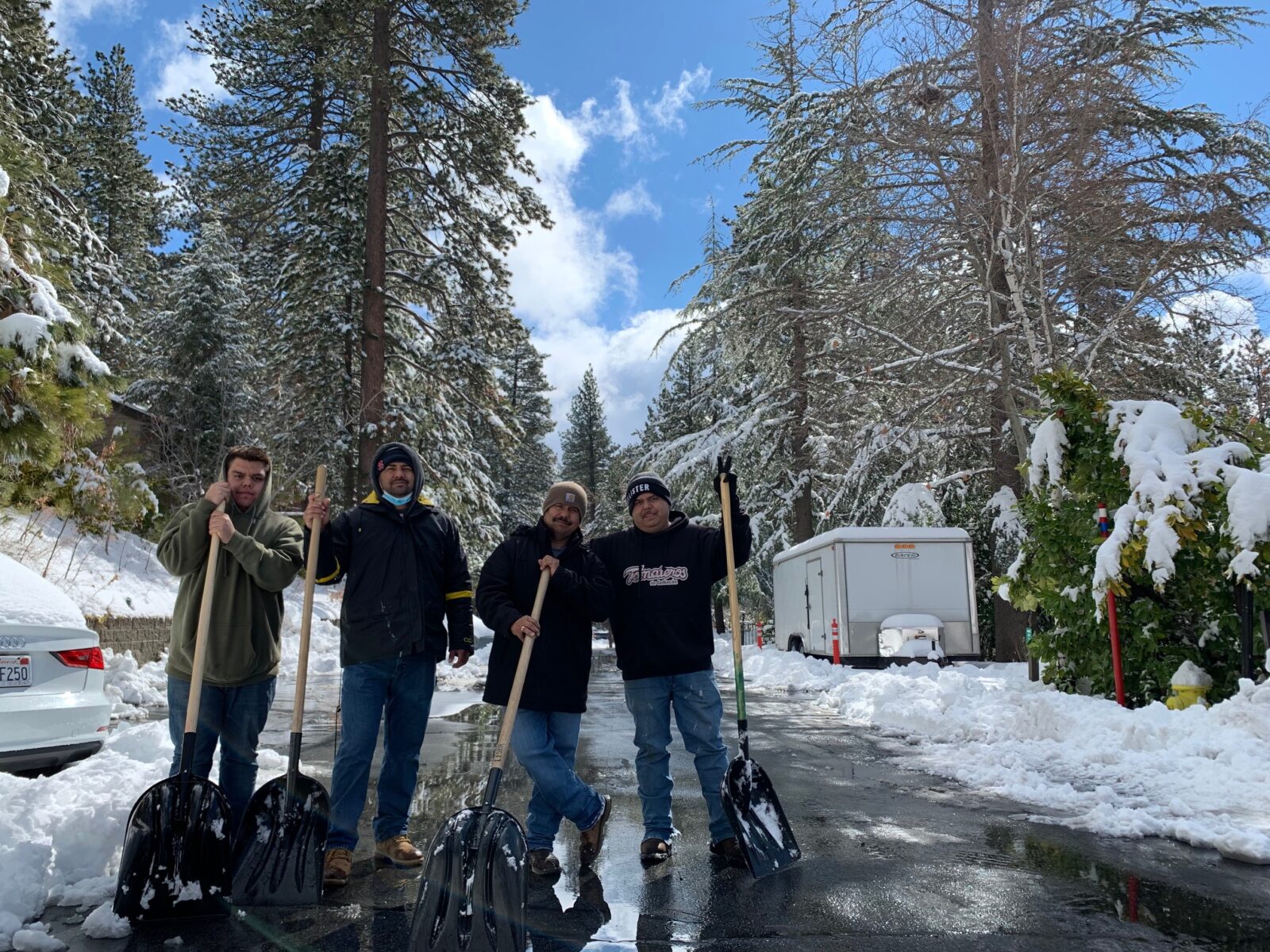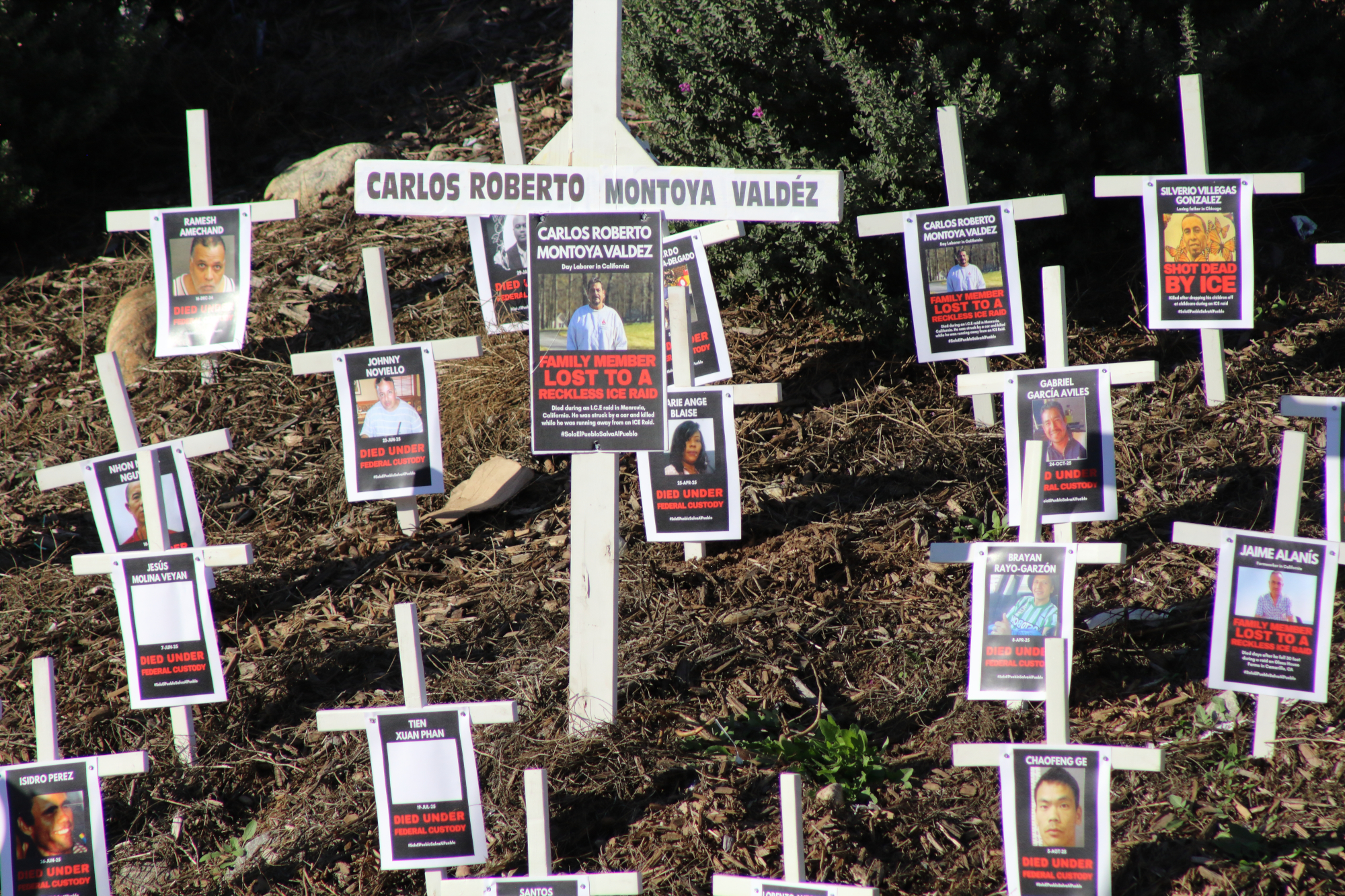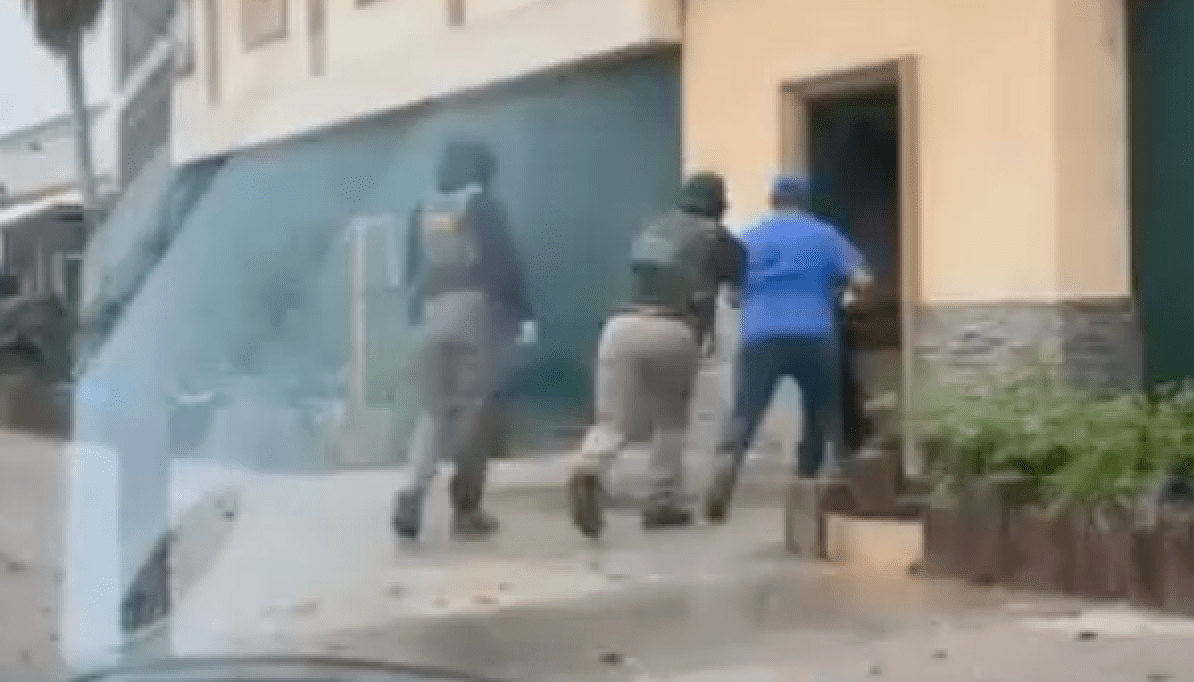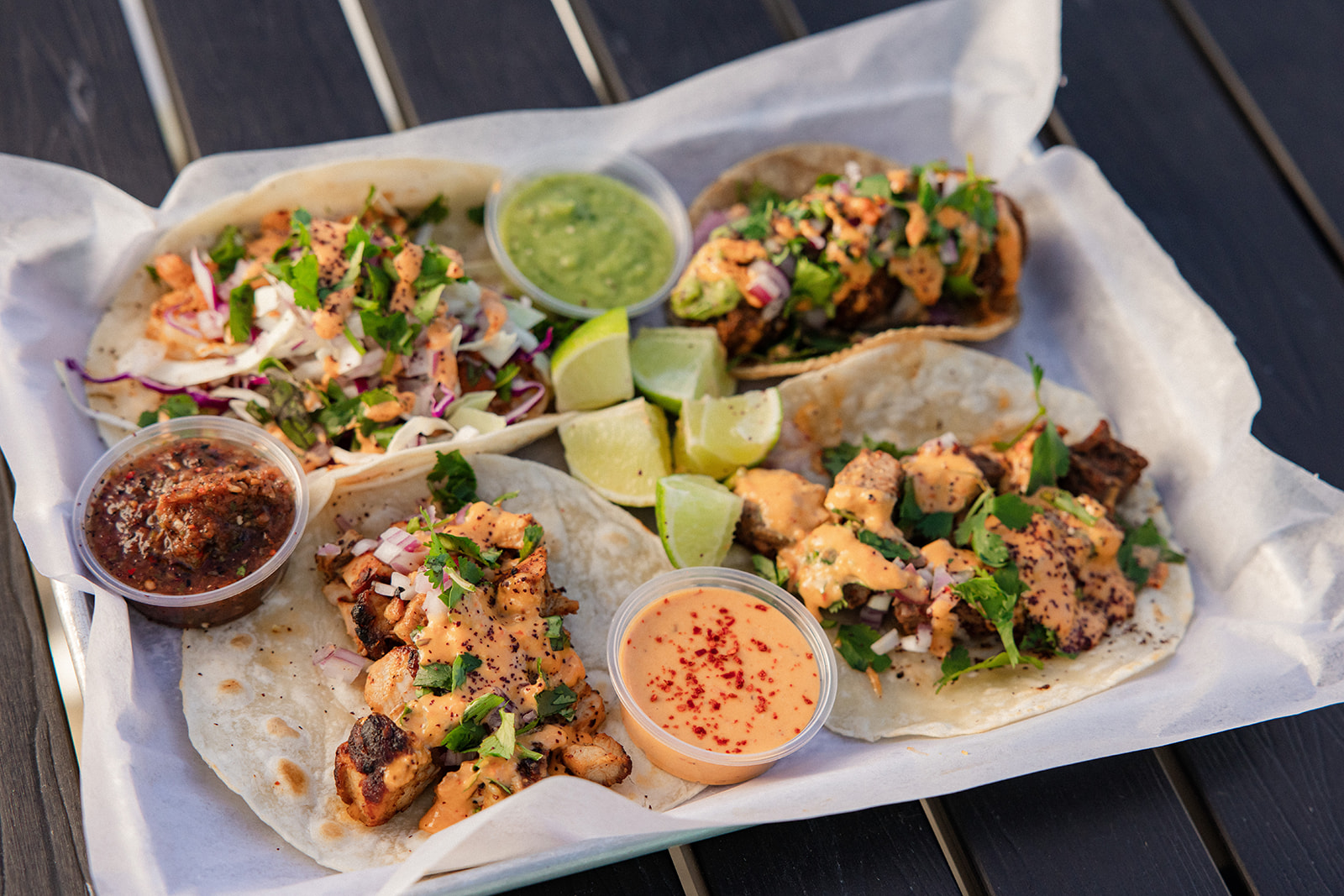[dropcap size=big]I[/dropcap]t’s 8 AM on a Friday, 25 degrees out, and the fresh foot of powdery snow that blanketed the southern California mountainside community of Lake Arrowhead over the last couple of days has turned dense and icy. Cars are trapped in it, driveways are completely covered in it, and walkways outside of homes are caked with this type of melting snow’s dangerous result, black ice.
A group of four burly men walk down Peninsula Drive with snow shovels over their shoulder looking around to see who needs help clearing the snow. Many residents need to go out to work or stock up on fresh groceries, but a dense, tall berm of snow stands in the way between the car and the street. Accordion-led corridos emanate from one of the men’s phones and they stop to shovel a walkway from a nearby condo community all the way to the doorstep, a few flurries of snow occasionally fall from the snow-covered trees and they remove that snow too.
“We’ve been dishwashers, prep cooks, and line cooks at local restaurants, now we work as handymen or whatever people need us for. There’s always lots of work up here,” Orlando tells L.A. TACO. “We jump from job to job, paving, building decks, roofs; we do whatever needs to get done.” Orlando is from Villa Juarez, Sinaloa, close to Culiacán. He proudly wears a “Tomateros” hoodie as he shovels the heavy snow, the minor league Mexican baseball team in the Pacific division that is the pride and joy of Sinaloa. His 22-year-old son Eduardo, who was born in the Twin Peaks neighborhood of Lake Arrowhead, works alongside him. Eduardo shares that while he enjoys working with his father, his goal in life to be a car mechanic.
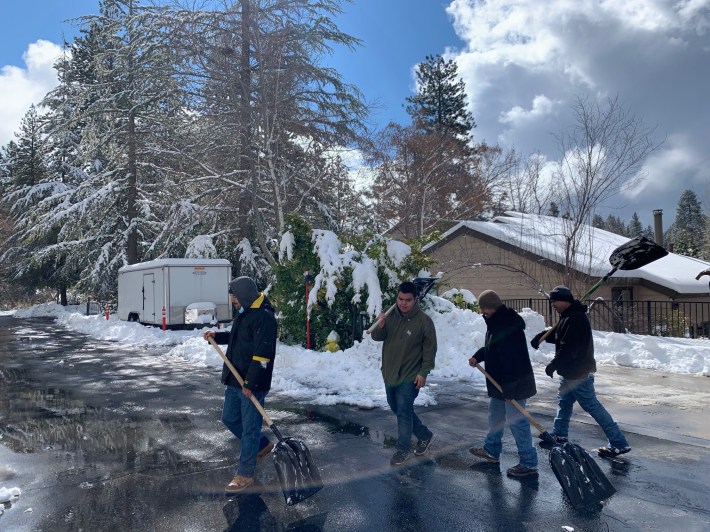
The father-and-son team work with Orlando’s brother, Cesar. Along with Manuel, an immigrant from Nogales, Sonora that they met on the mountain when the family moved to Lake Arrowhead from Sinaloa in 1997. “We moved directly from Sinaloa to Twin Peaks because we had family from the rancho where I’m from who was living here; we’ve had family living here since the 70s.” According to Manuel, Mexicans have always had a big presence in the mountain communities of Crestline, Lake Arrowhead, and Big Bear. So much so that his wife prepares up to 800 Sonoran-style tamales at a time to keep up with the demand by local Mexican workers. He says that most families are Mexican Americans from Zacatecas, Mexico.
“...time goes by too fast down there. We’ve already gotten used to ‘mountain time’ up here, and plus, we got used to the cold, clean air...there’s no going back.”
Orlando jokes that when it snows, they excitedly look out the window with “sad cat eyes like in that character from Shrek” to see how much snow they’re going to have to shovel for the next couple of days. While this last storm may be the last one of the winter season, they have plenty of work outside of shoveling snow year-round.
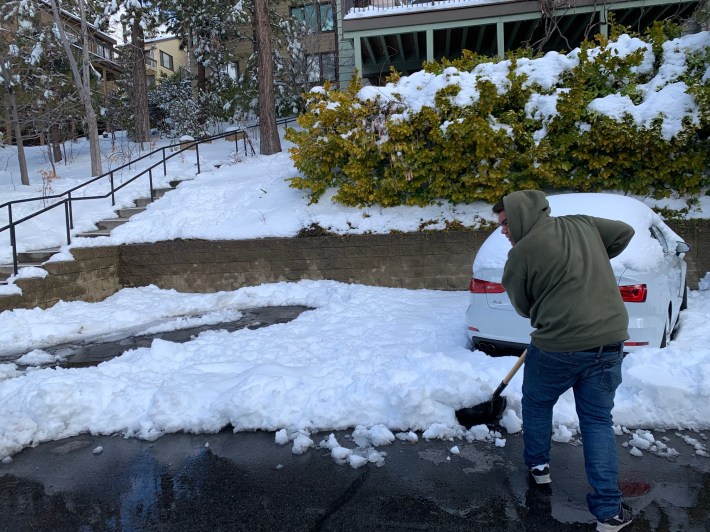
The group of mountain paisas tell L.A. Taco that despite many Lake Arrowhead residents who have hired them for work being Trump supporters, they have not encountered acts of direct racism against them. “The racists are few and far in between, believe it or not, despite all the Trump flags,” Orlando shares. To replenish after the long morning of shoveling snow in freezing temperatures, they plan on breaking for lunch soon: machaca and chilorio, two full-flavored guisados from the northern regions of Mexico. The former is made using sun-dried beef. When they have some rare downtime on weekends, they all drive down the mountain to San Bernardino and feast on mariscos. They are loyal to Mariscos El Chapo in San Bernardino because they say it tastes the closest to the quality you can get in Sonora and Sinaloa, Mexico’s two powerhouses for seafood.
When asked if they would consider moving back down the mountain and live in the city again, Manuel responds. “Nope. We love driving down to Los Callejones and to the beach, but time goes by too fast down there. We’ve already gotten used to ‘mountain time’ up here, and plus, we got used to the cold, clean air...there’s no going back.”
All interviews were conducted in Spanish and translated by Javier Cabral. Their last names were withheld at their request.
